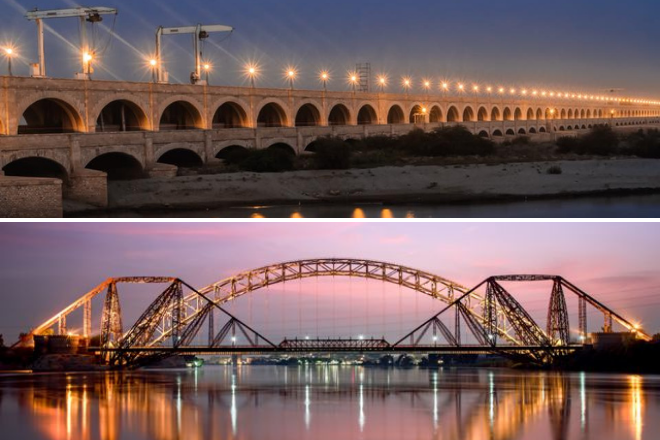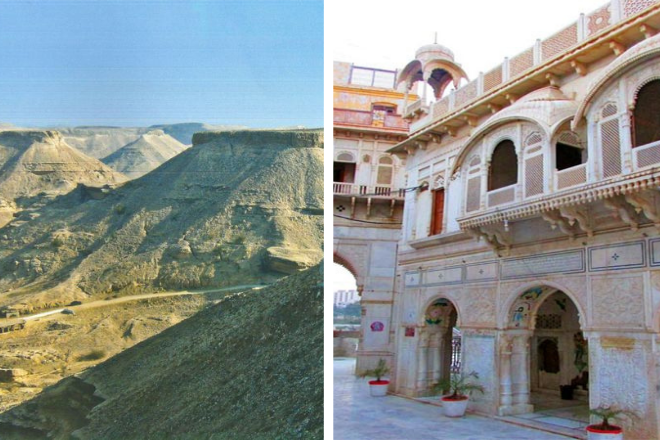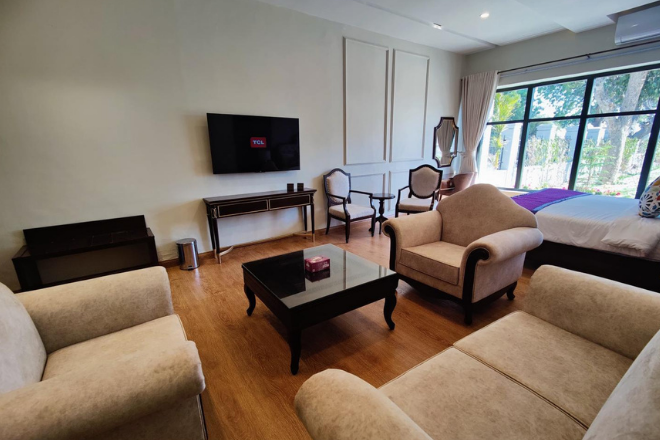Uncover Sukkur: Sindh’s Third Largest City on the Indus River
Sukkur, a prominent city in the Sindh province of Pakistan, is located on the banks of the Indus River. As the third-largest city in Sindh and Pakistan’s 12th most populated city, Sukkur reflects a rich history and cultural heritage that spans centuries. It is a key economic hub and has a strategic location for trade and agriculture. Over the years, Sukkur has evolved into a vibrant city known for its ancient sites and modern amenities.
Historical and Cultural Significance of Sukkur
The city was established by Sindh’s Rai dynasty. The contemporary city was constructed in the 1840s. Sukkur has various historical phases, including the rule of the Hindu Shahis, the Muslim Ghaznavids, and the British colonial period. The city’s historical significance is evidenced by its ancient sites and structures that have withstood the test of time.
Sukkur’s culture had diverse influences, including those from various dynasties that ruled the region. The city is known for its vibrant festivals, traditional crafts, and historical monuments.
Key Attractions and Landmarks of Sukkur

Sukkur has the following notable attractions and landmarks:
Sukkur Barrage
- Constructed in 1932, the Sukkur Barrage regulates the flow of the Indus River and supports agriculture in the region.
- It’s crucial for irrigation and flood control, impacting local agriculture and water management. Lloyd Barrage was its old name.
- The barrage features 66 gates designed for precise control of water flow, enabling efficient irrigation and flood prevention.
- Built with durable materials, it has become a symbol of modern engineering in Pakistan.
- Visitors can take guided tours to learn about its construction and the vital role it plays in the region’s irrigation system. The barrage also offers picturesque views of the Indus River.
Lansdowne Bridge
- The idea to construct the Lansdowne Bridge was first proposed between 1872 and 1874.
- The Lansdowne Bridge is an architectural wonder of its time, and stands proudly over the River Indus, connecting the twin cities of Rohri and Sukkur in Pakistan.
- This iconic bridge was completed and opened to traffic on March 27, 1889. It is a symbol of engineering excellence in the 19th century.
- The construction of the Lansdowne Bridge was awarded to the Westwood and Bailey Company of England, known for their expertise in building large-scale infrastructure.
- The project was overseen by Chief Engineer Mr. F.A. Robertson, whose leadership and vision were instrumental in bringing this engineering marvel to life.
- The total expenditure for the bridge was estimated at approximately Rs 3,375,000, a substantial sum for that era.
- The Lansdowne Bridge is renowned for its unique design and dimensions.
- It is a suspension bridge without pillars, a remarkable feature that adds to its engineering brilliance.
- The bridge spans 200 feet in the centre and extends 310 feet on each bank, making the total length 820 feet. Its width measures 15 feet. Remarkably, it was considered the longest rigid girder bridge in the world at the time of its completion.
Historical Sites

- The Sukkur Museum houses a collection of artifacts, including sculptures, coins, and manuscripts that highlight the city’s historical and cultural evolution.
- Lal Shahbaz Qalandar Shrine is dedicated to the revered Sufi saint Lal Shahbaz Qalandar. It is a place of pilgrimage and an integral part of Sukkur’s spiritual landscape.
Sukkur’s Geography and Climate – Weather Throughout the Year
Sukkur is characterized by its flat terrain and proximity to the river, which plays a crucial role in its agricultural economy. Sukkur experiences a semi-arid climate with hot summers, mild winters, and relatively low rainfall.
- Summer (April to June): Temperatures can soar above 40°C (104°F), with dry conditions and occasional heatwaves.
- Monsoon (July to September): This period brings moderate rainfall, providing some relief from the summer heat and supporting local agriculture.
- Autumn (October to November): The weather becomes more pleasant, with temperatures ranging from 25°C to 35°C (77°F to 95°F).
- Winter (December to February): Winters are mild, with temperatures ranging from 10°C to 25°C (50°F to 77°F), making it a comfortable time for travel.
Accommodation in Sukkur

Sukkur offers a range of accommodation options to suit different preferences and budgets.
- Luxury Hotels: For a luxurious stay, consider hotels that provide top-notch amenities and services.
- Budget Hotels: Several budget-friendly hotels offer comfortable accommodations at affordable rates.
- Guest Houses: Local guest houses provide a more homely experience and often offer insights into local culture and traditions.
Transportation and Accessibility in Sukkur
Sukkur is well-connected by various modes of transportation, making it easily accessible from major cities in Pakistan.
Travel Distance From Rawalpindi
The distance between Sukkur and Rawalpindi is approximately 1,200 kilometers (746 miles). The journey typically takes around 15-18 hours by road, depending on traffic conditions.
Travel Distance From Islamabad
Sukkur is about 1,100 kilometers (684 miles) from Islamabad. Traveling by road can take approximately 14-16 hours, while flights are available and take about 1.5 hours.
Sukkur to Karachi Distance
The distance from Sukkur to Karachi is around 500 kilometers (311 miles). The drive usually takes around 6-8 hours. Alternatively, train services and flights are available for quicker travel.
Sukkur Multan motorway
The Sukkur-Multan Motorway (M5) connects Sukkur to Multan, facilitating efficient travel between these two major cities. The motorway reduces travel time and improves accessibility.
Local Cuisine: Sukkur’s culinary scene is influenced by Sindhi cuisine, which is known for its rich flavors and use of spices. Key dishes to try include:
Local Markets: Sukkur’s bustling bazaars include Liaquat Bazar, Mochi Bazar, Ameer Ali Bazar, and others. These are commercial hubs and great places to experience local culture and shop for traditional handicrafts, textiles, and spices.
Community and Lifestyle: Sukkur’s community blends traditional and modern influences. The city’s lifestyle reflects its rich cultural practices and vibrant social life. Hospitality is deeply ingrained in their culture, and they take pride in making guests feel at home.
Travel Tips for Visiting Sukkur
Weather Awareness: Check the weather forecast before your trip and pack appropriate clothing for the season.
Travel Documents: Ensure you have your identification and necessary travel documents.
Health Precautions: Stay hydrated and be cautious of local food and water to avoid any health issues. In case of any emergency contact rescue 1122, or police 15.
Local Currency: Carry some local currency (Pakistani Rupee) for small purchases and transactions.
Transportation: Plan your transportation, especially if you are traveling from distant cities.
Cultural Sensitivity: Respect local customs and traditions, particularly when visiting religious and historical sites.
Conclusion
Sukkur city has a rich historical background, cultural influences, and significant landmarks such as the Sukkur Barrage. Its strategic location on the Indus River and its vibrant local life make it an interesting destination for travelers. Whether exploring historical sites, enjoying local cuisine, or learning about the city’s role in irrigation and flood control, Sukkur offers a unique and engaging experience.
Guide to Pakistan is a valuable resource for discovering the country’s diverse attractions. It provides detailed information on various tourist spots, cultural sites, and natural landscapes. With insights on local customs, accommodations, and travel routes, it helps travelers explore Pakistan’s rich heritage and scenic beauty.


